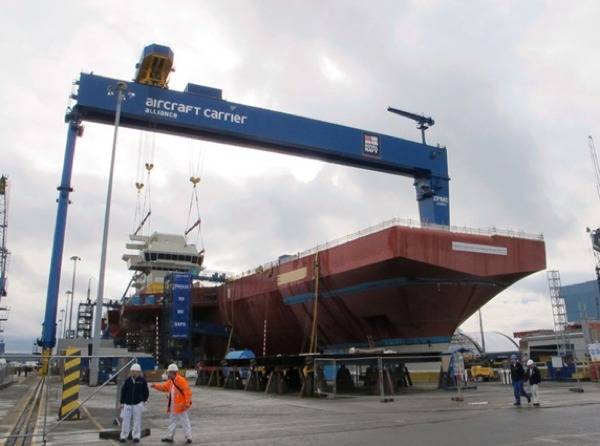
Babcock delivers final Integrated Waste Management System (IWMS) component for UK’s new Queen Elizabeth-class aircraft carriers.
The Babcock-designed IWMS handles the various fluid and solid waste streams generated onboard the aircraft carriers and processes these until the products are benign and compatible with International Maritime Organisation (IMO) requirements for overboard discharge, or can be stored efficiently until landed. It integrates the oily water system, black (sewage) and grey (from showers, sinks, galleys and laundries) water system, and solid waste and final treatment system, which all operate through the ship’s Integrated Platform Management System.
The Waste Water Treatment Plant (WWTP) is a key component of the IWMS. It processes the black and grey water generated onboard, and discharges permeate compliant with the international standard for marine pollution control MARPOL 73/78 Annex IV. Each carrier has three autonomous WWTPs, located forward, amidships and aft.
Factory Acceptance Testing of the final WWTP, for the second of the two carriers was successfully completed at Babcock’s Whetstone premises, prior to dispatch to Govan for installation in the relevant section of the ship. Babcock will support system commissioning and harbour and sea acceptance trials for final acceptance on the ships by the Aircraft Carrier Alliance.
Babcock’s Defence Systems Technology Managing Director Jeff Lewis said: “The IMWS is the first coherent integrated waste management system on a warship. It will minimise the manpower requirement associated with waste handling, as well as freeing up valuable on-board storage space and minimising reliance on shore-side facilities."
The aircraft carriers HMS Queen Elizabeth and HMS Prince of Wales are being delivered by the Aircraft Carrier Alliance (ACA), a unique partnering relationship between BAE Systems, Babcock, Thales and the Ministry of Defence. They are being built in large individual blocks at six shipyards around the UK, which are then transported to Babcock’s Rosyth facility for final assembly and integration.




